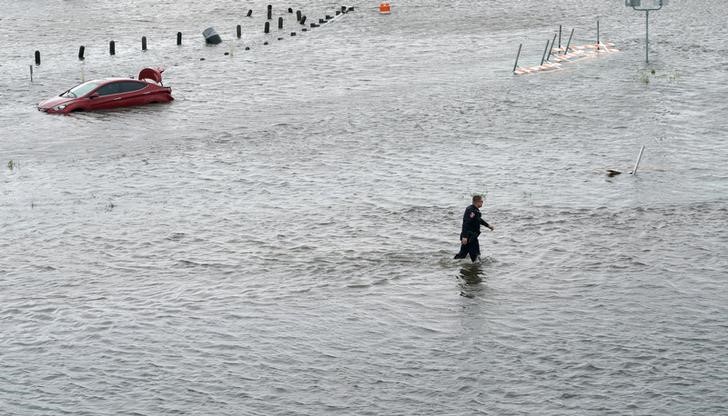 © Reuters. A police officer wades through the Hurricane Harvey floodwaters in Alvin
© Reuters. A police officer wades through the Hurricane Harvey floodwaters in AlvinLONDON (Reuters) – Insurers need to improve the way they calculate potential risks from natural catastrophes such as hurricanes, wildfires and earthquakes, the Bank of England said on Thursday, with 2017 expected to be a record year for such losses.
A number of insurers and reinsurers in Britain and elsewhere have issued profit warnings following catastrophes such as hurricanes in the U.S. and Caribbean, earthquakes in Mexico and wildfires in California this year.
Hurricanes Harvey, Irma and Maria are expected to cause at least $100 billion in insured losses, reinsurers and modeling agencies say, compared with losses of about $74 billion caused by Hurricane Katrina in 2005.
The UK general insurance sector showed it was resilient in stress tests carried out by the Bank of England, it said in a letter to chief executives published on its website.
But scenarios to test risks such as flooding following hurricanes or tsunamis after earthquakes showed “few firms go beyond a simple loading to reflect weaknesses”, it said.
“Boards are encouraged to understand what the limitations are with the catastrophe modeling, and their inherent uncertainty when applicable, especially for their key perils,” the Bank said.
Fusion Media or anyone involved with Fusion Media will not accept any liability for loss or damage as a result of reliance on the information including data, quotes, charts and buy/sell signals contained within this website. Please be fully informed regarding the risks and costs associated with trading the financial markets, it is one of the riskiest investment forms possible.
Source: Investing.com





























